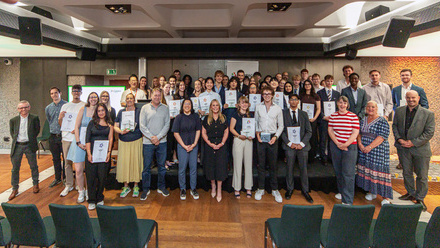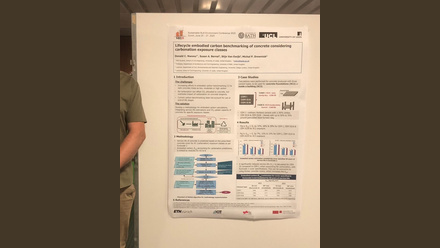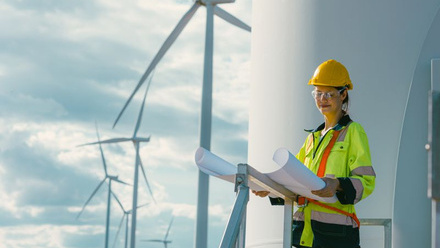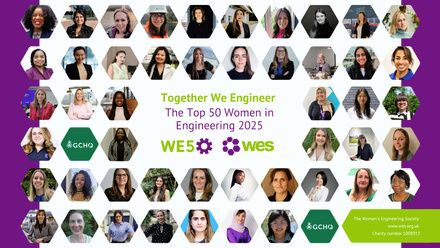An insight into the COVID-19 crisis from the Student & Early Career Committee
The COVID-19 crisis has affected the entire world, and yet each individual experience is unique. Below are a series of testimonies from the IOM3 Student & Early Career Committee (SECC) detailing their experiences – from PhD students, to furloughed industrial workers, to those who have remained in work throughout. It is an interesting insight into the challenges this crisis has brought to the table.
Martyn Jones CEng MIMMM, Chair SECC, Rolls-Royce – Furloughed
I was in the first wave of staff to be furloughed at the start of April. Having a young family, working from home came with challenges, so actually, being furloughed solicited a mixed response. I was disappointed and frustrated with being put on furlough, but fully understood the need for our business to be able to ‘take a breath’ so to speak. I felt guilty afterwards when I was enjoying spending quality time with my son, while my wife and so many others were working hard to tackle the pandemic and keep the country running. At the beginning of May, I was told I was to go back to work and, although I had enjoyed the extra time with my son that I’d been unexpectedly granted, I was glad to get back to contributing to essential work that has needed doing. While there is still a great deal of uncertainty around how the world recovers from this pandemic, I personally find it very useful and reassuring that throughout this period I’ve had the IOM3 community and resources to fall back on when necessary. Having the IOM3 COVID-19 Content Hub has been a particular help, along with knowing that in difficult times, members have access to the Member’s Benevolent Trust.
Aimee Goodall ProfGradIMMM, Vice Chair SECC, Tata Steel – Furloughed
I was furloughed at the start of April, with the original plan of going back to work in June. In May, it was announced that my furlough would be extended until August. April and May were treated like a guilty summer holiday – I was gardening, reading and watching too much TV. Honestly, I began to feel restless and bored. When furlough was extended, four months off started to feel significant and I wanted to ensure that I was still developing professionally. Some things I have been doing to help me feel a sense of achievement and development include updating my CV, learning a new computer language, attending online lectures/events and looking into Chartership, with some great resources on IOM3 TV talking me through the process!
Chloe Fisher, PhD student University of Leeds – Working from home
When the COVID-19 crisis hit and the University closed, I was denied access to laboratories and equipment I use almost daily for my research. Though debilitating, I have instead chosen to use this time to write my thesis ahead of schedule. This has helped to re-focus the direction of my studies for when I am able to start experiments again. The UK Government has offered six-month costed extensions for UKRI funded PhDs to provide support for students who have had their project timeline upturned by COVID-19. It remains unclear when we will be returning to University, and there will be many challenges when we do, such as maximum occupancies imposed on lab use and PPE shortages, but everyone agrees that the safety of students and staff comes first.
Michael Kenyon, Innoval Technology – Recently furloughed
I’ve only been on furlough for a little over a week, but I have found the time useful to reflect on my development, updating personal goals and reviewing those that I have neglected. Even though I am more than happy with my job and working environment, I have found updating my CV has forced me to think about my own achievements and additional skills gained since completing my PhD. I would recommend to anyone that has been furloughed to use some of the time to reflect on past achievements and implement new goals – but don’t forget to relax and recharge as well.
Tomasz Zalewski TIMMM, Rolls-Royce plc – Working from home and onsite
Whilst I have still been able to spend half my time in the onsite lab, adjusting to spending half my time working from home was difficult at first. Talking to a family member who has worked from home for several years, the most impactful advice I received was to establish a ‘normal’ work routine. At the beginning of the lockdown it was easy to slip into a routine of never being able to switch off from work. With remote network connectivity issues during peak times, I often found myself working early in the morning and late in the evening. Whilst still working my allotted hours in the day, the prospect of work hanging over me felt like there was no time to switch off. Sticking to a more standard workday helped me become just as productive at home as I am in the office, and ultimately meant my wellbeing is better now than it was at the beginning of lockdown.
Maitheya Riva GradIMMM, RINA Tech UK Ltd – Working throughout
In these challenging times, I consider myself very lucky to have been able to hold on to my routine. As a consultancy, even before lockdown, we were already able to work remotely, but as we have our own laboratories onsite and I am a laboratory-based Materials Engineer, smart working was not an option. I have to admit that although an empty office may be a familiar space, it is a completely different experience. In all this uncertainty the answer of my team has been one of such support and resilience that has really been inspiring.
Alice Robinson GradIMMM, Rolls Royce – Working from home
Starting a new role during lockdown was much harder than I was expecting. Even before the national lockdown hit, I found myself frustratedly climbing the walls of my flat, symptom free, yet in quarantine having just returned from a short break abroad. While I was away, I’d officially completed my graduate training programme and had formally transitioned from a Graduate Metallurgist to a Materials Technologist and I was so excited to get involved. Starting my new role was very different from anything I could have imagined. I struggled to get my head around new alloy systems without colleagues to quiz or a microscope to throw bits under with all practical training on hold. I’m now starting to find my feet in my new role and I’m enjoying it more every day. I still don’t know when I’ll properly get in the lab, but that’s something I can look forward to once life gets back to something like normal.







